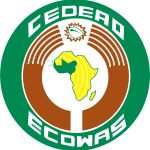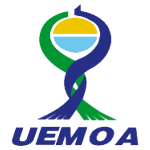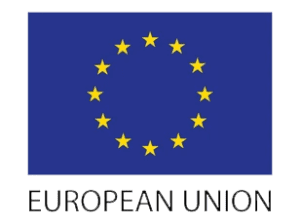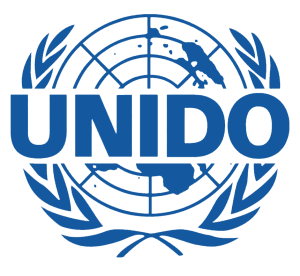Côte d’Ivoire is a country located on the southern coast of West Africa. With an area of 3,496 km², Yamoussoukro is the economic, political and cultural capital of the Ivory Coast. According to the latest official census, the population of Côte d’Ivoire was estimated at 24 million in 2017. The official language is French.
Value Chains
Cassava
Cassava is one of the priority sectors identified in Côte d’Ivoire’s National Export Strategy. This choice is based on the exploitation potential, combined with the criteria of competitiveness and socio-economic impact, including job creation for women and youth. Production efforts to improve the cassava economy in Côte d’Ivoire are based on increasing the area under cassava using best practices.
In Africa, which produces about half of the world’s cassava, Côte d’Ivoire is one of the top five countries with huge production quantity.
The programme effort, when completed, will improve the cassava value chain in Côte d’Ivoire and make it a priority product for export.
Tropical Fruits
Côte d’Ivoire is a tropical agricultural county with fertile soil, a favourable climate and other resources which provides the necessary conditions for growing tropical fruits. Côte d’Ivoire has a wide range of top-quality tropical fruits. Although grown in smaller quantities, tropical fruits generate income for bottom-of-the-pyramid farmers in rural areas. Significant investment in the tropical fruit sector is a priority of the national export strategy because of its export potential, competitiveness criteria and socio-economic impact, including job creation for both women and youth.
Cotton
Cotton production has been an important engine of economic growth in several West African countries in recent decades. For these countries, cotton has been a vital source of export earnings. Heavily dependent on agriculture, these economies are subject to the uncertainties surrounding crop and livestock enterprises, such as weather and disease. Also, the profitability of cotton can be affected by the volatility of world prices.
Cashew
Cashew is one of Côte d’Ivoire’s main export commodities. It is an essential source of income for small farmers and processors in the North of the country. The country, which produces about 23 % of the world cashew supply, processes only 7 % of cashew nuts domestically. This situation is due to many negative factors such as insufficient funding for the establishment of efficient processing facilities, poor quality and yield due to poor maintenance of plantations, inadequate storage facilities, etc.
In recent years, Côte d’Ivoire has been focusing on this sector with high export and income potential. The Council of Ministers has issued a decree granting tax incentives to entrepreneurs who process cashew nuts.
Cashew processors will be exempt from customs duties and VAT on purchases of equipment and spare parts for five years, and these entrepreneurs will also benefit from various tax credits.
The programme’ aims to improve the cashew sector in line with the national export strategy. The sector has vast export potential, advantageous competitiveness criteria and can have a socio-economic impact, including job creation for both women and youth.
Information and Communications Technology
Côte d’Ivoire’s ICT sector is booming, thanks in large part to the vision and initiative of the country’s Ministry of Digital Economy. ICT-based initiatives currently account for nearly 8% of the country’s GDP and this figure is expected to rise to 15% in the coming years. The country’s enthusiasm for new, technological solutions has led observers to call it a “Start-up Nation in Africa”.
The Government of Côte d’Ivoire has made the digitisation of customs, finance and education a top priority. The creation of the Virtual University of Côte d’Ivoire, the distribution of digital health cards and vaccination records, and the creation of the Digital Youth Foundation to combat youth unemployment are examples of major new ICT initiatives.
In 2017, the government has stated that the digital ecosystem will have an impact on long-term economic growth, profoundly changed the functioning of the social economy and create the basis for a knowledge-based economy.
Plastic
Côte d’Ivoire accounts for 60 % of Africa’s rubber production and ranks seventh in terms of world production. A large number of farmers have become interested in rubber over the last decade due to high prices resulting from a sharp increase in world demand. Farmers see rubber as a more stable source of income because they can harvest several times before the end of the year.
Planned Activities
Côte d’Ivoire’s National Export Strategy (NES) targets six priority sectors and sub-sectors (rubber & plastics, cashew, cotton, textiles & clothing, tropical fruits, cassava & derivatives, and new information & communication technologies) and five cross-cutting components, namely transport and logistics, access to finance, trade information and promotion, packaging and quality, and export capacity. These sectors were selected based on their export potential, combined with competitiveness criteria and socio-economic impact including job creation for both women and men of all ages. Lessons learnt from the implementation of the “Programme in Support of Trade and Regional Integration (PACIR)”, funded under the 10th EDF, indicate that the choice of value chains is effective when market-driven during implementation.
In this way, the programme retains the flexibility to support NIS value chains and will focus, during implementation, on two or three value chains to complement the European Investment Bank (EIB) interventions currently under development. Where appropriate, the programme will take into account the principles of the EEM for the enterprises concerned.





